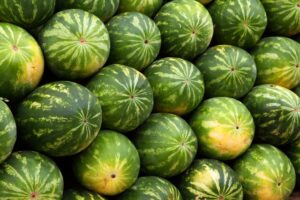Introduction
Parmesan cheese, known for its distinct flavor and crumbly texture, is a popular ingredient in various dishes. However, it may come as a surprise to some that Parmesan cheese is not considered vegetarian. Despite being made from milk, Parmesan cheese is not suitable for those following a vegetarian diet. In this article, we will explore the reasons why Parmesan cheese is not vegetarian and delve into the processes involved in its production.
The Use of Animal Rennet
One of the main reasons why Parmesan cheese is not vegetarian is the use of animal rennet in its production. Rennet is an enzyme traditionally obtained from the stomach lining of young calves. It plays a crucial role in the coagulation process, separating the curds from the whey in cheese production. Animal rennet contains an enzyme called chymosin, which helps create the desired texture and flavor in Parmesan cheese.
Alternative Rennet Sources
While animal rennet has been widely used in cheese production for centuries, there are alternative sources available today. Vegetarian rennet, also known as microbial or vegetable rennet, is derived from microbial sources such as bacteria or fungi. This type of rennet can be used as a substitute for animal rennet in cheese making, making the cheese suitable for vegetarians.
Traditional Methods and Regulations
Parmesan cheese, or Parmigiano-Reggiano as it is known in Italy, is produced following strict traditional methods and regulations. These regulations dictate that Parmigiano-Reggiano can only be made using animal rennet, specifically from the stomachs of calves. This adherence to tradition and the desire to maintain the cheese’s unique characteristics and quality has led to the continued use of animal rennet in its production.
Labelling and Certification
The use of animal rennet in Parmesan cheese production also affects its labelling and certification. In many countries, including the European Union, cheese made with animal rennet cannot be labeled as vegetarian. This labelling requirement ensures transparency for consumers who follow specific dietary restrictions and helps them make informed choices.
Vegetarian Alternatives
For those following a vegetarian diet, there are alternatives available that mimic the flavor and texture of Parmesan cheese. Vegetarian-friendly versions of Parmesan cheese are often made using microbial or vegetable rennet. These alternatives can be found in specialty stores or made at home using plant-based ingredients.
Conclusion
In conclusion, Parmesan cheese is not considered vegetarian due to the use of animal rennet in its production. The traditional methods and regulations surrounding Parmigiano-Reggiano cheese require the use of animal rennet, making it unsuitable for those following a vegetarian diet. However, vegetarian alternatives made with microbial or vegetable rennet offer a viable option for individuals seeking a vegetarian-friendly substitute.
References
– Parmigiano-Reggiano Consortium: www.parmigianoreggiano.com
– The Vegetarian Society: www.vegsoc.org
– The Spruce Eats: www.thespruceeats.com
– Food and Agriculture Organization of the United Nations: www.fao.org












